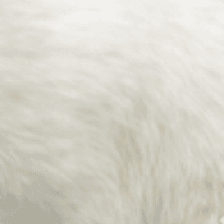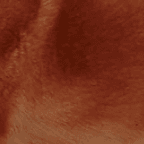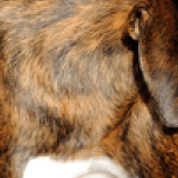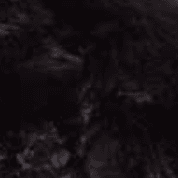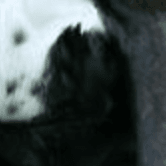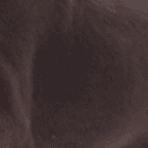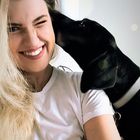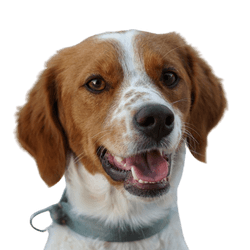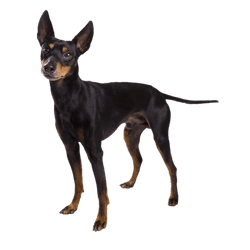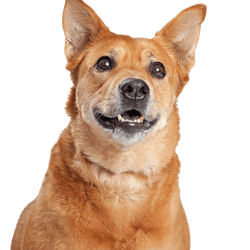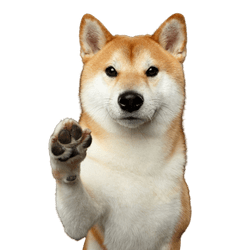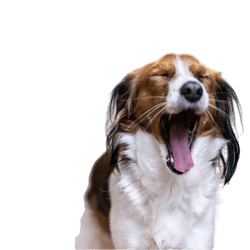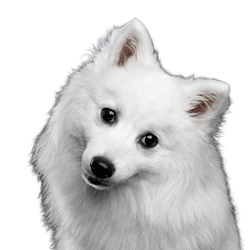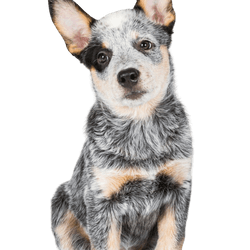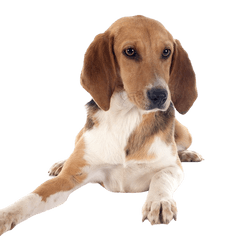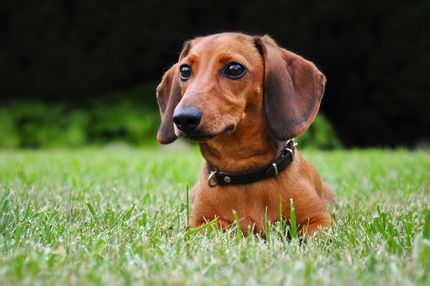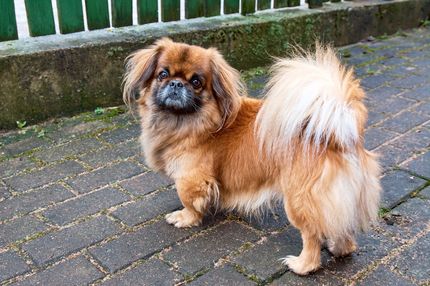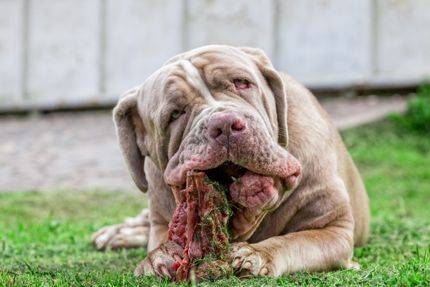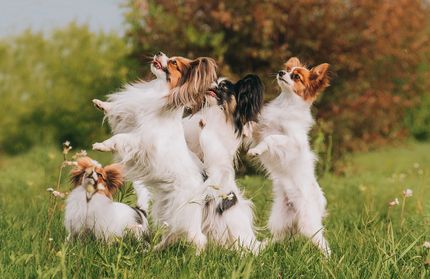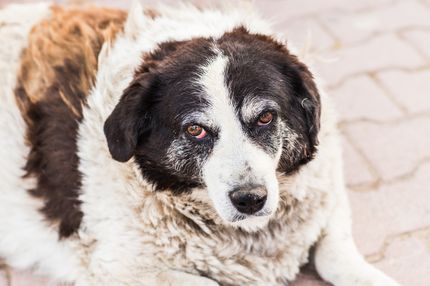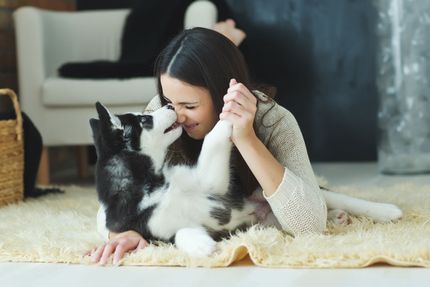Facts & Origin
Origin and history of the Border Collie
The official origin of the Border Collie is Great Britain, where its ancestors were brought by Romans and Vikings. In 1576 there is a first description of the working of a herding dog, silent and crouching, by John Caius. This clearly applies to the medium-sized bundle of energy from Border Country, the Scottish-English border area.
Its present breed designation stands on the one hand for the geographical origin, on the other hand it describes the original task of the dog: The term "colley" means something like "to be useful".
Who was Old Hemp?
Own competitions of such herding dogs took place regularly since 1873. Particularly outstanding was then in 1894 a dog with name "Old Hemp", which won this competition at the age of only one year - and remained unbeaten. The meanwhile deceased male possessed an exceptionally good herding ability and is said to be one of the progenitors of today's Border Collies.
Herding behavior of the Border Collie
As a herding dog, the Border Collie can bring it to true masterpieces. While he is working, he shows a crouched posture with his tail tucked under his belly as a sign of utmost concentration. His special technique of observation, also called the "eye", enables him to keep even large herds or many grazing animals in check all by himself - and incidentally still have his reference person in view.
Suitability and attitude
The Border Collie is clearly defined as a herding dog. In the meantime, however, he is also kept in families or for exhibitions. If he cannot follow his innate instinct, however, he should be given sufficient exercise: The Border Collie is great for any kind of dog sport. In addition, he shows himself excellent in tracking or rescue dog work.
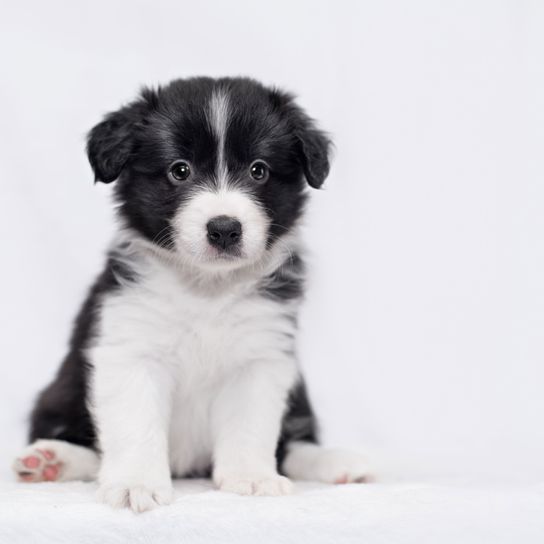
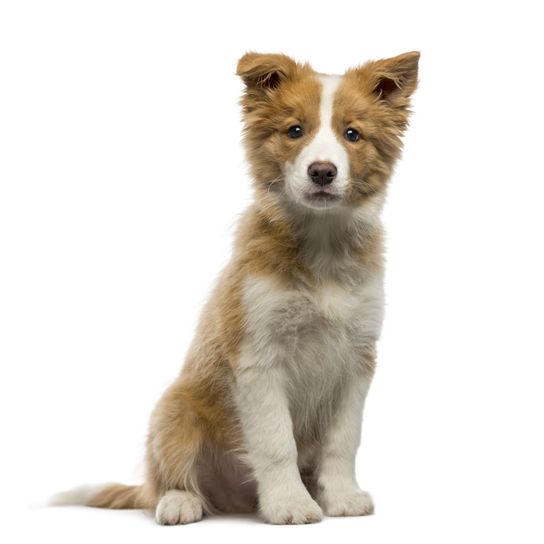
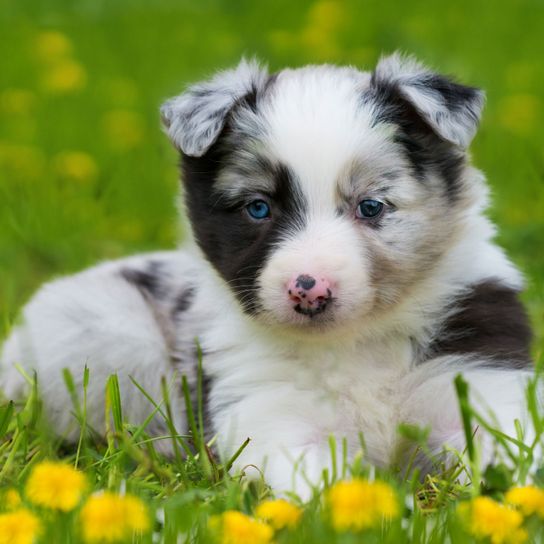
| Alternate Name | - |
| Origin | UK |
| Life expectancy | 10 - 15 years |
| Care requirements | high-maintenance |
| Activity level | high |
| FCI group | Sheepdogs |
| AKC group | working group |
| KC group | working group |
Border collie mixes
Attitude, character and temperament of the breed
Typical Characteristics of the Border Collie
Border Collies are excellent working dogs: they are clearly capable of hard work, which they perform with perseverance, but at the same time show themselves to be of very good leadership. Breed specimens should be alert, attentive and receptive, while having neither nervous nor aggressive tendencies. They are very strongly people-fixated and often build close relationships with their owners. But they are also friendly and open to outsiders. If they are sufficiently exercised, they always seem well-balanced, like to be stroked and are considered to be particularly fond of children.
However, these dogs are not cuddly animals: they constantly need new challenges. Due to their high intelligence, Border Collies can independently analyze problem situations and react to them in a targeted manner, which makes them easy to train for trick or disc dogging. However, they learn just as quickly any unwanted nonsense.
Education
Inconsistency causes great stress to these sensitive animals - which is why they are definitely not beginner dogs. Their high intelligence and their distinctive sensitivity require some experience to be able to steer the urge to perform into the right channels. You must always be present for the Border Collie, because he likes to keep an eye on "his" human. This gives him the certainty to be able to react immediately to your wishes and problems and thus to always act correctly.
Employment ideas
Outside of work, his energy is discharged in great occupational joy. The Border Collie is too smart for simple games of hide and seek, because repeating a routine or bringing the same stick over and over again bores the intelligent dog. Border Collies are ideal partners for goalball games and love to maneuver through obstacle courses. Your dog also proves amazing at retrieving, as he can learn numerous terms for one and the same object and recognize it with certainty.
Besides these ideas, he is a well-known companion for Flyball, DiscDogging, Obedience and Agility.
Usage
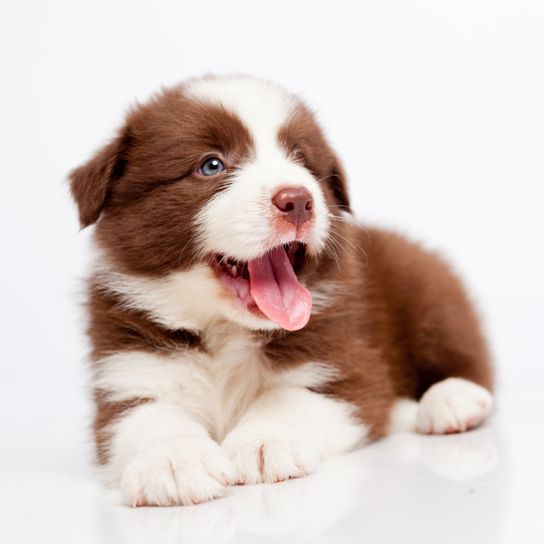
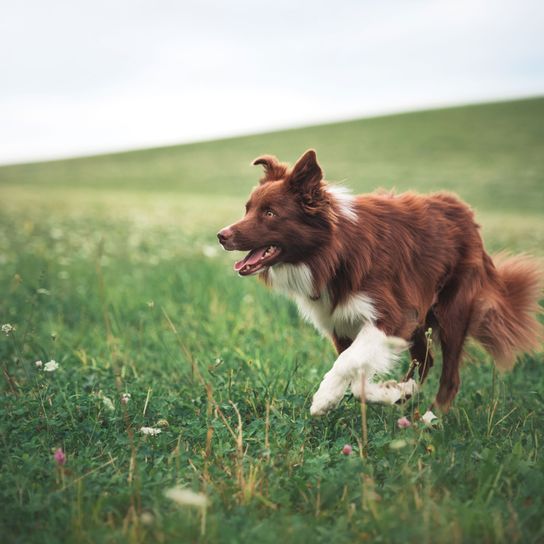
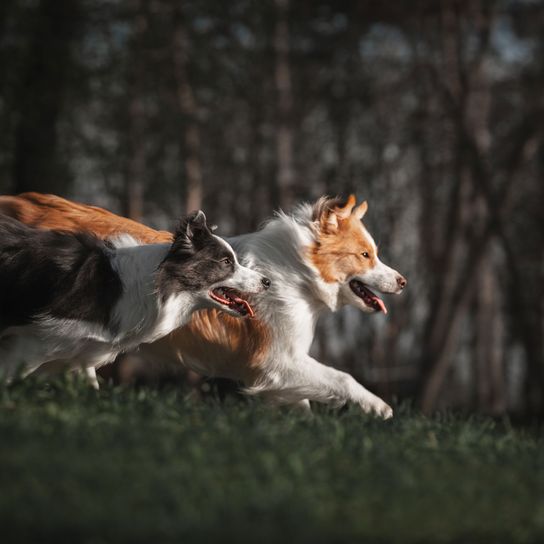
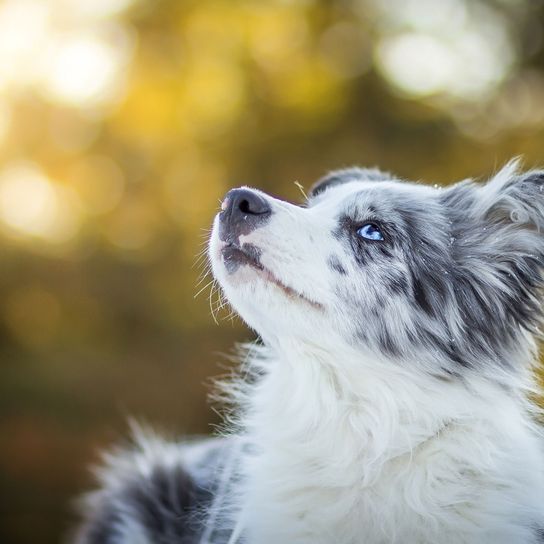
Breed specific diseases and health problems
According to the American Kennel Club, the Border Collie is considered a generally hardy breed. However, his restlessness is not the only thing that threatens the Border Collie: many representatives of this breed suffer from the MDR1 defect and thus are hypersensitive to drugs, so that the treatment of sick animals can be difficult. In addition, the following diseases should be watched out for in this dog breed:
- Collie Eye Anomaly (CEA)
- Canine Ceroid Lipofuscinosis (CL)
- Trapped Neutrophil Syndrome (TNS)
In mating of two merle animals, which only dubious breeders do, it can also come to homozygous merle dispositions, in which the young animals are often accompanied by serious problems (deafness, eye malformations).
Buying a Border Collie
In order to prevent these diseases as much as possible, the parents should be tested for the corresponding dispositions. If you want to buy a Border Collie puppy, be sure to look for qualified breeders. This will protect you from a mentally or physically unhealthy pet on the one hand, and the future of the breed itself on the other.
A Border Collie puppy costs about 1200 Euro. The price often depends strongly on its color and pedigree.
Care of the Border Collie
To maintain the natural shine and protection of the coat, you need to brush your Border Collie regularly and give him a balanced diet - according to his age and activity level. If you are unsure about a suitable dog food, there are separate certified nutritionists for dogs.

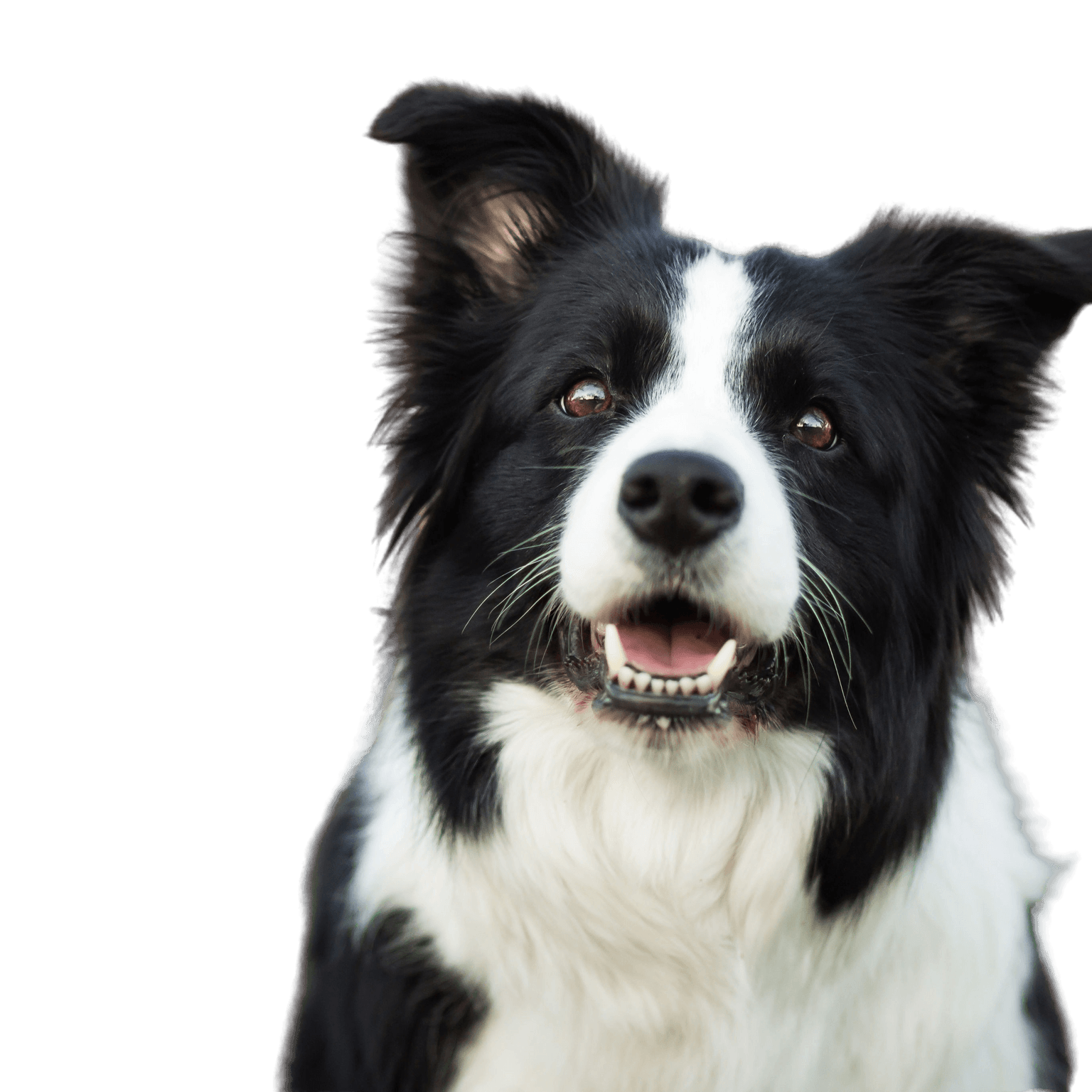
Breed characteristics of the Border Collie
The Border Collie is classified by the FCI as Group 1 (Herding Dogs and Cattle Dogs (except Swiss Mountain Dogs)), Section 1 (Sheepdogs). Its breed standard requires a working test.
The general appearance should be that of a well-proportioned dog, with supple outer lines showing quality, grace and perfect harmony combined with sufficient substance. Movements are generally free, flowing and tireless, with the paws raised as little as possible to allow the dog to move stealthily and with great speed. This gives an impression of the ability of a persistent performance.
Border Collie males have a height of about 53 cm, bitches are slightly smaller. At the same time they bring a weight of about 14-20kg on the scale.
The head
The skull of the Border Collie is quite broad and has no pronounced occipital protuberance. The stop, on the other hand, is strongly visible and the cheeks are neither full nor rounded.
The muzzle
The muzzle is usually black, except in brown or chocolate dogs, where it may be brown. In blue dogs it should be slate colored. The nostrils are well developed regardless, as is typical of a working dog. The moderately short but strong muzzle tapers toward the nose. The Border Collie has a typical scissor bite, with the incisors of the upper jaw overlapping the incisors of the lower jaw in close contact and set vertically in the jaw.
The eyes
The oval eyes of the Border Collie are wide-set and basically brown, except in Merles where one eye or both eyes may be partially or wholly blue. The expression of the eye is gentle, alert, attentive and intelligent.
The ears
The ears are also set wide apart and are carried erect or semi-erect. In the breed standard they are described as expressively mobile.
The body
The athletic body is slightly longer than the height at the withers. The strong, muscular neck should be slightly arched and broaden toward the shoulders. Likewise, the loins are desired to be broad and muscular, but these should not show any curvature.
The deep chest is fairly broad and the ribs are well sprung.
The tail
The tail of the Border Collie is moderately long and reaches with its last vertebra at least to the hock joint. At the same time, it is set low, well furnished with hair, and with an upward sweep at the end, which completes the dog's graceful outline and harmony. When excited, the tail may be carried higher, but never over the back.
The limbs
The bones of the forequarters are strong, but not coarse. The shoulder of the Border Collie is well laid back and the elbows are close to the body. The pastern is slightly sloping when viewed from the side. The hindquarters are generally broad and muscular, running gracefully toward the base of the tail when viewed from the side. The thigh is relatively long, the stifle joint well angulated and the strong hock joint set low. From the hock to the ground, the Border Collie has a strong bone structure.
Both the front and hind feet are oval and have well padded, strong and sound pads. The toes should be arched as well as close together. Short and strong claws are evidence of a Border Collie's health.
The coat
There are basically two recognized varieties of Border Collie coat. In both, the outer coat is dense and of medium texture, the undercoat soft and equally dense, giving the Border Collie weatherproof protection.
- Moderately long coat (mane, breeches and flag are formed; however, face, ears, forelegs (excluding feathers) and hindlegs from hock to ground, the coat should be short and straight.
- Shorthair.
Color-wise, a variety of colors is permitted, but white shall never predominate.
| Fur length | medium |
| Fur | flat coated |
| Ear shape | Standing Ears |
| Tail | fanned out |
| Anatomy | slim, sporty |
| Size ♀ | 46 - 53 cm |
| Weight ♀ | 12 - 19 kg |
| Size ♂ | 48 - 56 cm |
| Weight ♂ | 14 - 20 kg |
| Suitable For | - |
Colors
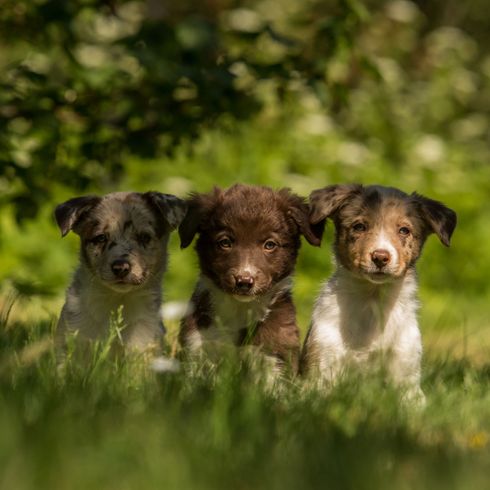
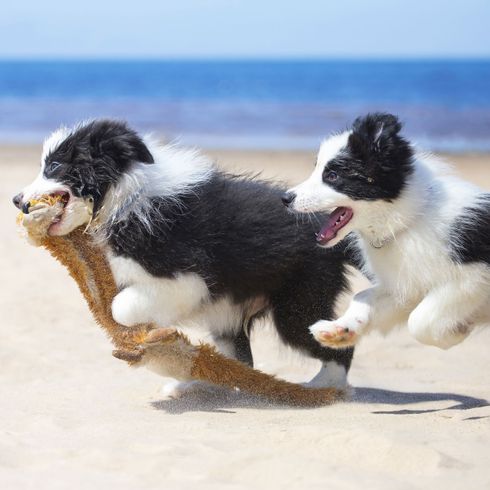
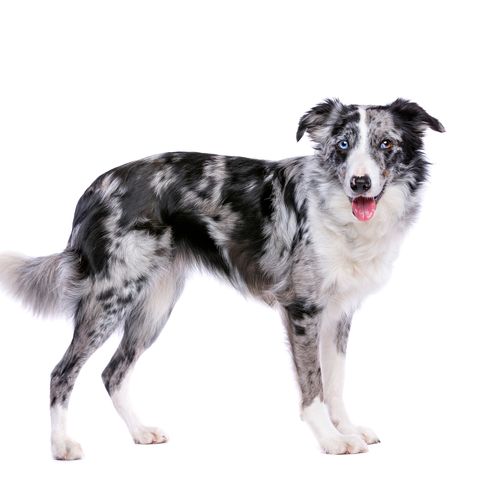
Known Diseases
Epilepsy
Definition: Dog has epilepsy if, for example, at least two epileptic seizures occur more than 24 hours apart.
Eye diseases
Often occur with allergies and intolerances.
FAQ
-
The Border Collie is suitable for farms, sporty people and families and people who like to go into dog sports.
-
No. The Border Collie is a demanding dog breed that needs a lot of exercise and mental workout.
-
To a Border Collie fits any other active dog breed. Especially other herding dogs / sheepdogs.
-
Yes, a Border Collie can be kept in an apartment without any problems. The important thing is that you have a few hours a day for the dog and take him for endurance walks, running or cycling and give him enough mental workout.
-
The Border Collie comes from Great Britain.
-
Very famous - especially for the pedigree - is Old Hemp, a famous progenitor of this breed with excellent working abilities.
-
Despite the fact that it is easy to train, the Border Collie should not be kept as a first dog. This is due to its strong urge to work, which tends to cause problems for beginners.
-
Yes, the Border Collie is suitable as a family dog if it is given enough exercise.







